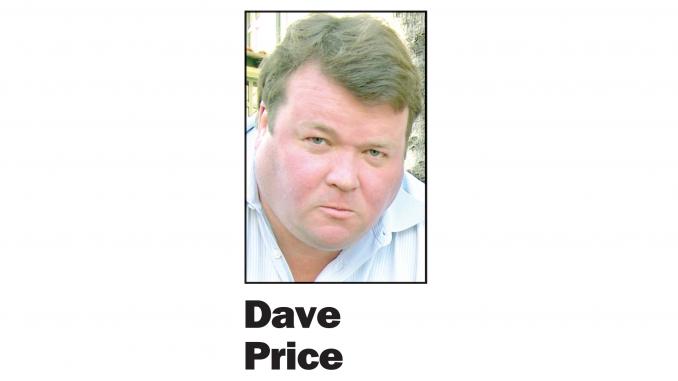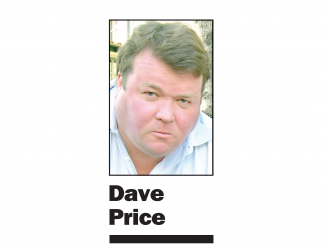
OPINION
BY DAVE PRICE
Daily Post Editor
Mortified.
That’s the best word I can summon to describe my feelings when, in sixth grade, my gym teacher had all the boys sit down in a classroom to hear about sex ed.
Minutes before the session, everybody knew something was going on because the girls were sent to one classroom, with a female instructor, and the boys to another room, with a male instructor.
And when the teacher began talking, I froze. I didn’t want to look around. I was thinking, “Am I really hearing this?” I’m sure my eyes were as wide as saucers.
When he put the diagrams on the wall, I couldn’t lift my pencil to take notes.
At age 11, sex really isn’t a topic you want to hear about in a room full of other kids. But at 11, I was curious. And also embarrassed to talk about it. I didn’t start thinking about girls in a skirt-chasing kind of way until a couple of years later.
Birds and the bees
A few years before that mortifying sixth-grade experience, my dad had taken the time to tell me about the “birds and the bees.” That was awkward, but I got through it and understood the basics. I remember he used the word “plumbing” quite a few times.
I’m not against sex ed. I think it’s essential that the subject is taught in the schools so that our youth can avoid STDs and pregnancy. But it has to be delivered in a sensitive and age-appropriate manner.
I don’t want to come off as a prude or an overly protective parent, but the way the Palo Alto Unified School District has handled the rollout of its new middle-school sex ed program certainly raises some questions.
As the Post has previously reported, there’s a group of Palo Alto parents who feel the new seventh-grade sex ed program, called Teen Talk, gives 12-year-olds “very detailed, graphic description(s),” and that the presentation is “designed to increase curiosity (about) different sexual behaviors in immature minds,” according to a petition that has collected more than 1,200 signatures.
14 ways to show affection
At Tuesday’s school board meeting, one mother said that it wasn’t age-appropriate to teach 12-year-olds 14 ways to show affection without sex, such as touching the other person’s private parts.
Another mother said her daughter told her she was uncomfortable with the sex-ed presentation, saying she was “shocked” by what she had learned. The mother said that when she was putting her daughter to bed, the girl leaned over and whispered, “I wish I didn’t know.”
It appears that some parents were concerned that their children were not just learning about heterosexual sex but other alternatives, too. But that’s required by a new law passed by our Legislature.
Education Code Section 51930 (b) (2) says schools are “to provide pupils with the knowledge and skills they need to develop healthy attitudes concerning adolescent growth and development, body image, gender, sexual orientation, relationships, marriage and family.” (Emphasis mine.)
This Palo Alto controversy raises two questions:
First, Superintendent Max McGee emphasized that parents can choose to pull their kids out of this two-week program if they choose. But that defense misses the point. We pay our taxes to educate our kids, so we have the right to expect that all of the programs in the schools meet the standards of parents. It’s not about opting out, but creating a program that everyone believes is appropriate. We’re talking about “public” schools — something available to all — not something that families feel they need to avoid.
Did parents get a say?
Second, there’s a difference of opinion about how Teen Talk was vetted before it was brought into the middle schools.
On one hand, McGee says, “the content was vetted by our school principals and our chief academic officers.” He said parent meetings were offered at each middle school as well as “interactive parent education sessions.” He said about 100 parents attended the information nights and “parent skill building workshops.”
The sex ed curriculum is presented by educators who work for a Redwood City nonprofit Health Connected.
On the other hand, the parents who are complaining about the program say they were left out of the process of approving this curriculum. They said that when they asked to review the Teen Talk materials, they were told they couldn’t because of copyright laws. A copy of the book was available for parents to review at each school, but parents said it wasn’t there until after the class had already started.
These parents want to see what was presented in class, such as videos they say are “racy.”
It may be a situation where the district really attempted to get parents to review the program in advance, but those who are complaining now didn’t get the message then.
A time out
But since that the program has been presented in many seventh-grade classes in Palo Alto, it would be a good time to step back and hold a meeting with the parents who are complaining.
Let them review all the course materials including the books and videos, and hear what the kids were told in class.
Then the school board — the people we elect to represent us in education decisions — should make the final decision about what ought to be taught to seventh graders. After all, what’s “age appropriate” is a judgment call, and we elect school board members to make judgments like this. I’m more skeptical when the judgment calls are made by un-elected administrators than people we, as voters, can hold accountable.
Let’s bring it all out into the open and let everybody have their say.
Editor Dave Price’s column appears on Mondays. His email address is [email protected].


